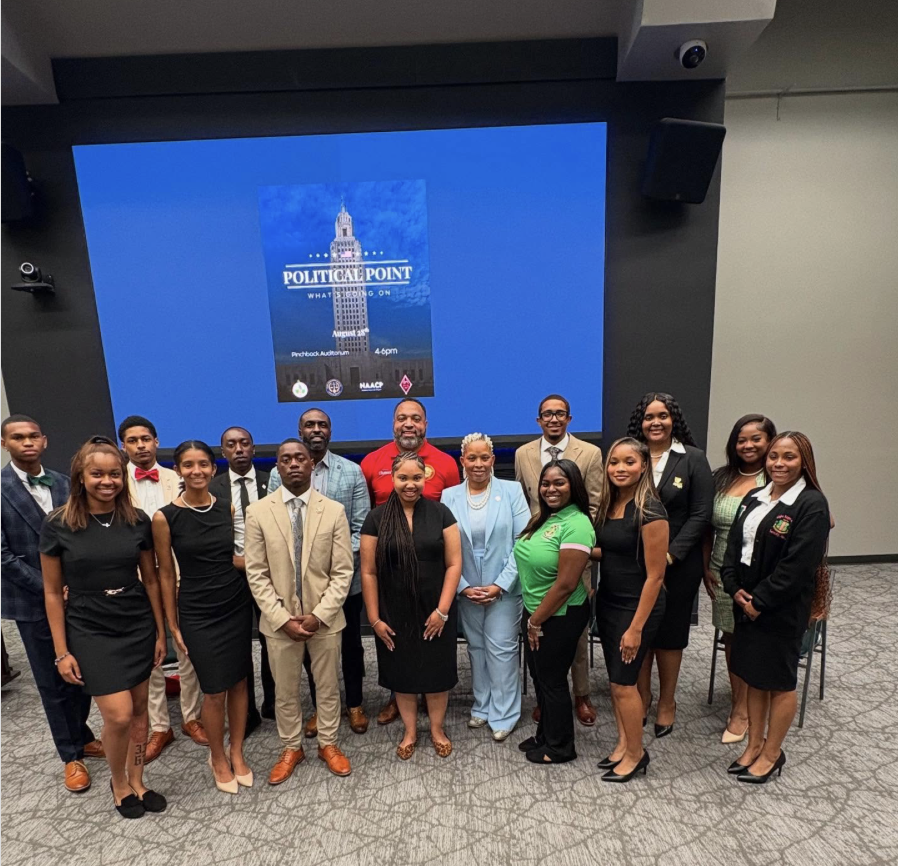Prior to the electronic era, students used pen and paper to chronicle their lives. Now, Internet users can keep up-to-the-minute journals called blogs that are available for surfers to get a glimpse of daily lives.
Blog, jargon for weblog, is an online journal used for daily journaling. They are more interactive than paper journals because most sites include photo albums, web links and customized pages.
Although the first blog or blogger isn’t known, the terminology has been credited to Peter Merholz, who according to www.Wikipedia.com, coined the word “blog” in 1999.
A novice web surfer can become a blogger — one who blogs — in a matter of minutes. There are step-by-step instructions to help create profiles and choose pre-constructed templates.
LaShanda Henry, creator of “BlackBloggin,” (www.blackbloggin.blogspot.com) has been blogging since 2001.
“Blogs are designed as tools for sharing, not exclusion,” Henry said in an e-mail. “When I’m reading someone’s blog, I feel like that person is giving me an exclusive pass into their world.”
Author Sylvia Hubbard is the creator of two blogs used to promote her books and talk about her love life.
While one of her blogs is used to promote her books, her other blog is where she discusses her love life.
“My second blog is a place to vent my frustrations about the relationships I continue to find myself in and have experienced,” Hubbard said in an e-mail. “I tell stories, I vent and I inform people of what is really going on in black woman’s head.”
Pamela Sanders, an Atlanta native who’s been blogging for less than a year, finds that blogging helps deal with personal issues.
“Initially, I started my own blog because I began to notice that my personal growth was becoming stunted because I wasn’t honestly dealing with certain aspects of my life.”
Blogging is not limited to recording personal expressions. There are blogs that focus on topics including news, politics, literary works and religion.
Sam Holloway is the creator of the blog, “Church of the Bad News.” His Web site, www.cotbn.com, contains blogs that deal with world politics.
“Blogging is a way for me to express and share my own ideas and perspectives,” Holloway said in an e-mail. “It’s also a way to make myself yet another relay station for other alternative information outlets.”
Blogging does have its downfalls. Unlike writing a newspaper article or novel, most bloggers do not have an editor to correct their work.
Every misspelled word, misplaced comma or grammatically incorrect sentence structure is subject to be brought to a blogger’s attention by anyone who reads a blog.
“There was one visitor who chose to lecture me on my mistaken use of ‘it’s and its,’ ” said Holloway.
Latasha Wallace, a journalist at The Panther, the student newspaper of Prairie View A&M University, said blogging could be used to improve the world’s perception of black people.
The creator of www.rosieandlucy.blogspot.com, Wallace said blogging would not only discredit the negative portrayals and perceptions of African-Americans, it would provide everyone with a more in-depth look into the online world that is progressing daily among blacks.
Wallace’s statement reinforces Holloway’s political and socioeconomic ideals viewpoint about blogging. Holloway said black people have a responsibility to get involved socially and “black blogging” gives the Internet a “black face.”
Categories:
Bye bye diary,
October 21, 2005
0
More to Discover





